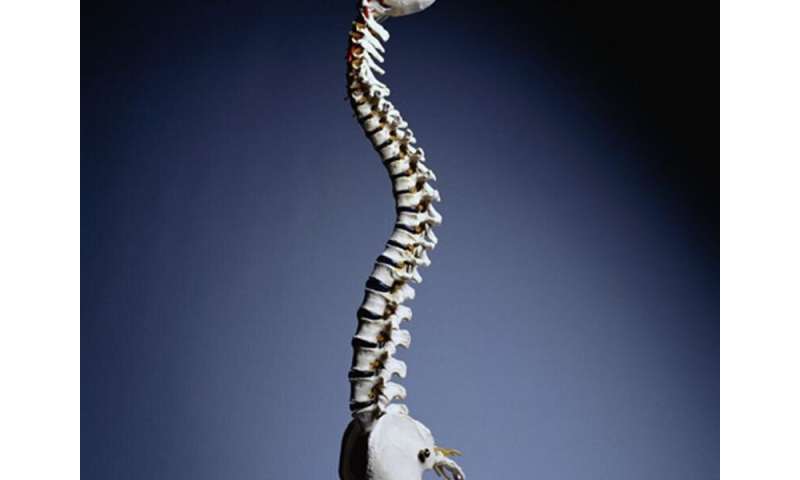
(HealthDay)—Compared with on-time dosing, delay of denosumab by more than 16 weeks is associated with an increased risk for vertebral fractures, according to a study published online July 28 in the Annals of Internal Medicine.
Houchen Lyu, M.D., Ph.D., from the General Hospital of Chinese PLA in Beijing, and colleagues estimated the risk for fracture among denosumab users who delayed subsequent doses compared with those who received doses on time in a population-based cohort study. Data were included for 2,594 patients aged 45 years or older who initiated denosumab therapy for osteoporosis.
The researchers found that during six months, the risk for composite fracture was 27.3, 32.2, and 42.4 in 1,000 for on-time dosing, short delay (four to 16 weeks), and long delay (more than 16 weeks), respectively. For composite fracture, the hazard ratios for short and long delay were 1.03 (95 percent confidence interval, 0.63 to 1.69) and 1.44 (95 percent confidence interval, 0.96 to 2.17; P for trend = 0.093) compared with on-time injections. For vertebral fractures, the hazard ratios were 1.48 (95 percent confidence interval, 0.58 to 3.79) and 3.91 (95 percent confidence interval, 1.62 to 9.45) for short and long delay, respectively.
Source: Read Full Article